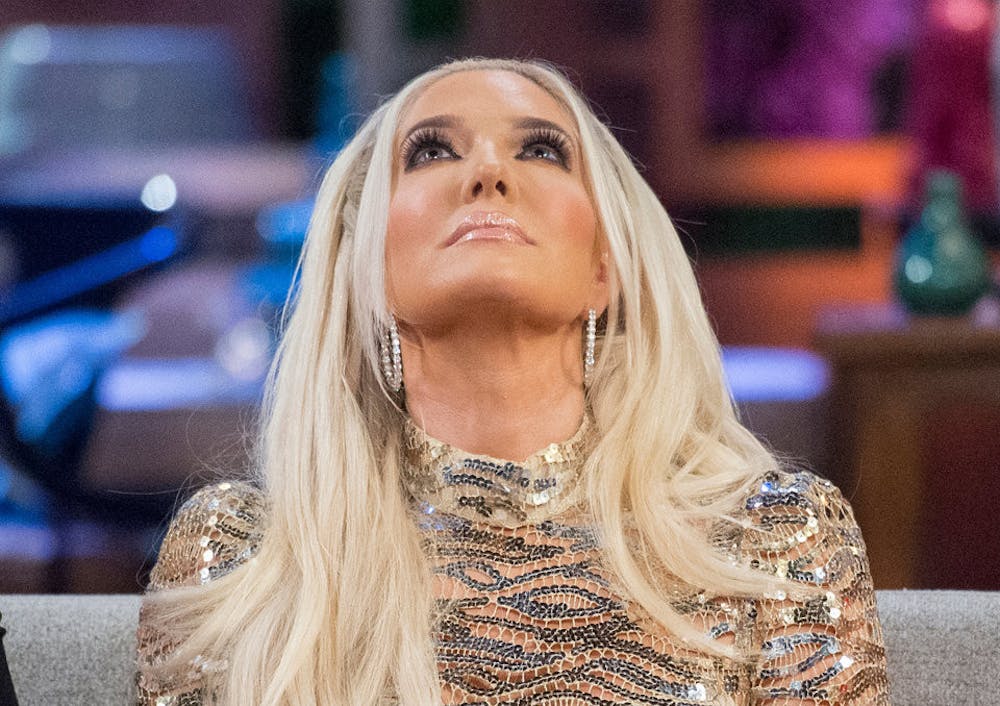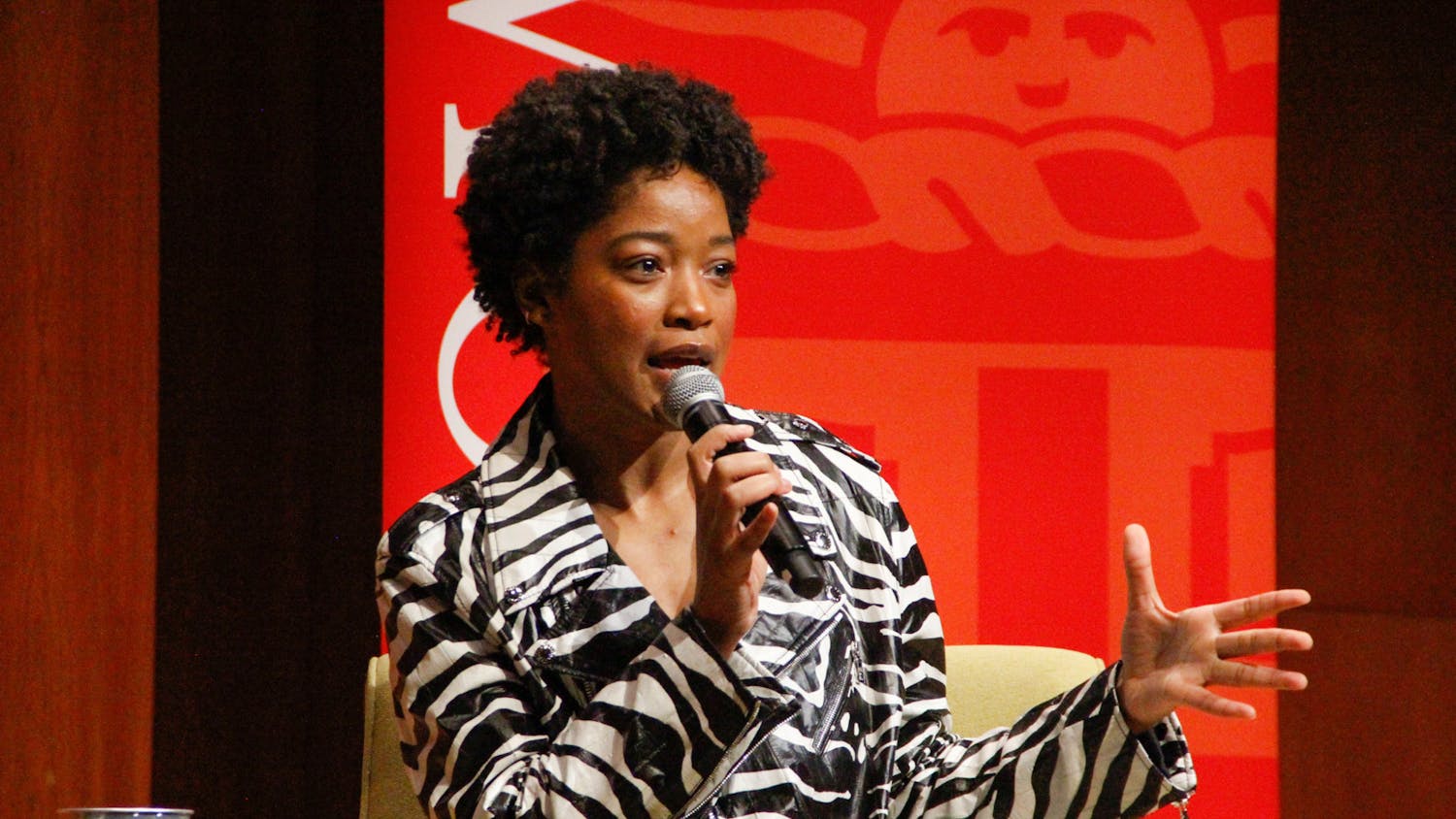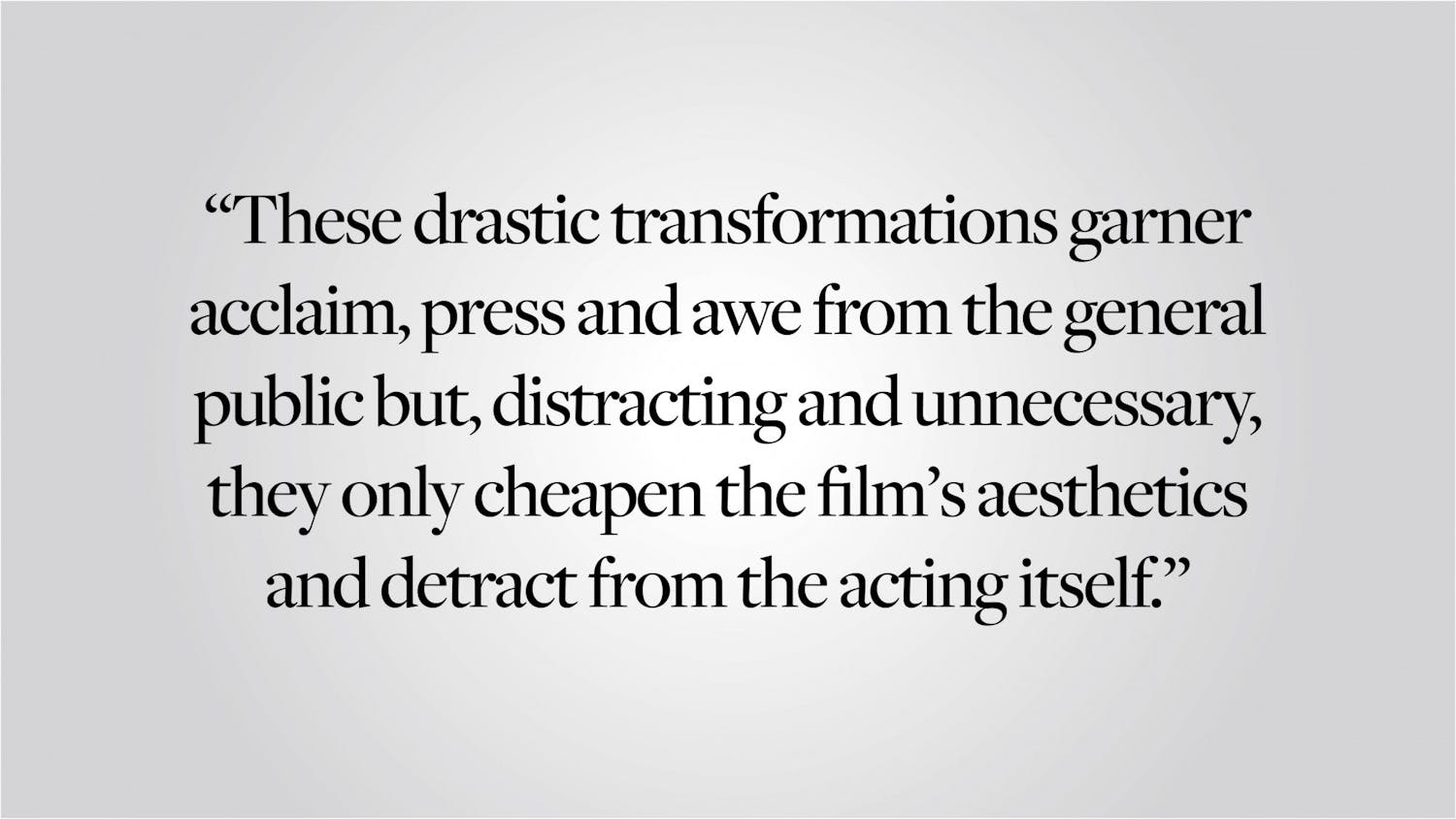Bravo’s “The Real Housewives” franchise is used to drama. Drinks are often thrown, gossip is spread and scandals abound. Sometimes, this drama exits the franchise’s limits and becomes a real-world spectacle. In 2013, Teresa Giudice, of “Real Housewives of New Jersey” fame, was charged alongside her husband for conspiracy to commit mail fraud, wire fraud and other financial crimes. She ended up serving over a year in prison, and her return home to her children was documented on camera in the season seven premiere.
In that season of “RHONJ,” Giudice’s crime was a part of the show, but it did not overwhelm the plot. It was essential in shaping her relationship with the other women and her eventually failed marriage, but the crime was the backdrop, not another cast member. But whatever kindness “The Real Housewives” producers spared for Giudice exists no longer.
On two franchises just this year, major crimes — far beyond Giudice’s tax evasion — structure “The Real Housewives” of Beverly Hills and Salt Lake City. On the 11th season of “RHOBH,” Erika Girardi — or Erika Jayne, the name of her pop-star alter-ego — abruptly divorces her husband Tom only a few episodes into the season. Tom Girardi is a powerful California lawyer known for his successful role in the 1993 Erin Brokovich case against Pacific Gas & Electric. A few weeks following their divorce last year, Tom Girardi’s assets were frozen due to allegations that he withheld settlement funds from his clients who were relatives of Indonesian airplane crash victims. The news breaks on the show, and is followed by many more allegations of Tom Girardi’s legal improprieties as the season continues. Erika Girardi’s defining characteristic is her wealth, which she mostly spends on clothes, hair and makeup, producing elaborate looks for every lunch and get-together. The plot of the most recent season is dictated by Tom Girardi’s actions, Erika Girardi’s performances of pity and whether her castmates believe she knew nothing about the stolen funds that were funneled to bankroll her (and her popstar alter-ego’s) closet.
On “RHOSLC,” a different and even more direct criminal implication propels the new season forward. Housewife Jen Shah, who is also known for flaunting her wealth through fur coats and gaudy jewelry, was arrested in late March for allegedly running a telemarketing scheme that defrauded elderly people with her assistant, Stuart Smith, who is also featured on the show. Cameras were rolling during Shah’s arrest and the episode featuring the dramatic chase to catch Shah aired two weeks ago. Shah shows up to go on a girls trip, receives a mysterious phone call and abruptly leaves the scene. Only 12 minutes later, Homeland Security officials arrive to find the other castmates about to take off on a luxury ski trip to Vail, Colo. The law enforcement officials ask about Jen, presumably to arrest her. All of this was filmed, except for the actual arrest, which occurred on the side of a highway. The rest of the season is haunted by Shah’s case. One of her fellow Housewives, Meredith Marks, is a foe of Shah’s and admitted she “hired a private investigator” to look into her businesses in the 11th episode. Whether Marks tipped off law enforcement and played a role in her arrest is a plot point of the season.
Needless to say, the “Housewives” franchises usually center around throwing drinks and shopping, not true crime. But this year proves we have reached late-stage reality TV. Viewers who were bored of reused taglines and tired stars are newly enthralled by the actual life or death — freedom vs. imprisonment — stakes of these newest seasons. And the twisted psychology of the women who have been so poisoned by the reality TV mindset over the years — Erika Girardi has been on the cast for six years, while this is only second season of “RHOSLC” — has never been more exposed.
Erika Girardi, in this year’s reunion (the culminating episodes that rehash the drama of each season in a panel format), is asked by producer Andy Cohen whether she thinks her husband ever loved her. “I think he loved me,” she sighs, “and then I think things happened.”
Things happen to everyone, to every marriage, to every life. Erika Girardi and Shah use the significant allegations of these crimes as evidence of their normalcy, a testament to the “reality” of “The Real Housewives.” Every viewer has some struggle: financial woes, divorce, spiteful enemies. It seems the women see their struggles, while more expensive and of greater consequence, as proof that they are just like us. Both women talk about defeating these charges and proving their innocence as if people get charged with federal crimes all the time. With their lives of extreme grandeur, they seem unable to assess the severity of their situations. They see their impending lawsuits as another enemy to beat, another Housewife to dump a martini onto.
Fans of “The Real Housewives” are often chastised for believing that the shows are real. Don’t you know, critics say condescendingly, reality TV is scripted, calculated, edited, manipulated? Yes — television is edited. What makes the shows so enjoyable is not that the viewer believes in the show’s reality, but that the Housewives do. Perhaps more than any member of their audience, these women seem to believe that “The Real Housewives” is reality. In one episode, Erika Girardi advises the audience, “Wanna know who your friends are? Go broke. Wanna know who your friends are? Go to jail.” She assumes everyone is living in some similarly antagonistic reality where loyalty is constantly tested. Or, if it has not yet been tested, that it will be at some point.
Shah says that “If I have any fault, it’s that I’m too giving.” In the first season, she threatened to drown her good friend and publicly outed another castmate’s son. To Shah, such mistakes are evidence of her humanity — hasn’t every woman threatened to drown their friend? Deep down, she truly believes she’s a flawed but redeemable person, like everyone else.
That Shah and Erika Girardi remain on these shows is, in one sense, mystifying. It would be humiliating to watch your own arrest on TV or to be questioned by Cohen about your finances. But the two women believe that “The Real Housewives” is real life and, in real life, they believe themselves to be good people. After enough episodes, they believe the show will eventually reveal to viewers their true, benign character.
The saddest part of this true crime era of “The Real Housewives” is that both women could have possibly played a role in defrauding elderly people and/or plane crash victims, though neither woman ever shows much compassion for their alleged victims. But the delusions of these women — and of reality stars more generally — is also upsetting. When watching their shabby defenses of their own innocence, you get the sense that they are performing for some imagined fan, the person rooting at home for them to win, to triumph over the odds. Why else would you get into the show in the first place, if not to be liked and adored?
“I bet everybody wishes they could be Erika Jayne,” Erika Girardi says in an early season. Everyone wants to watch Erika Jayne. No one, except Erika Girardi, wants to be her.





